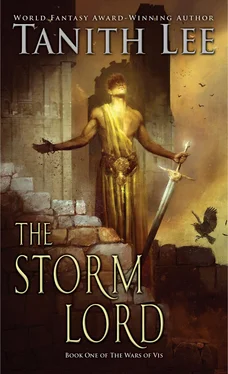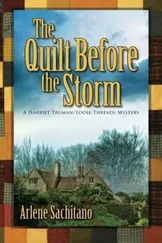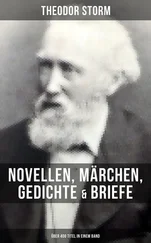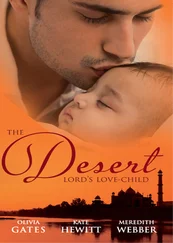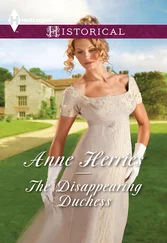Raldnor said nothing. The man troubled him; besides, his days of lonely traveling had made it additionally hard for him to communicate.
“At night,” the man said abruptly, “in the cold months, wild beasts run into the ruins. It would be best if you found some house to hole up in.”
“Thanks for your advice.”
“No thanks are asked, or indeed given, I think.” The man rose and the black wolf rose with him. “My name is Orhvan, and you’re welcome to share our hearth—the hearth, that is, of my little family, my kin by choice not blood.”
Raldnor hovered between embarrassment and reluctance. Yet it would be better to rest in reasonable comfort tonight than roam the city searching for some bleak cranny. He felt at once intolerably weary, as if all the exhaustion of his spontaneous flight had suddenly caught him up.
“Come,” Orhvan said.
“I have some money. I’ll pay for anything I have.”
“Money? Ah, the city doesn’t recognize such things. All is barter here.”
Raldnor got to his feet and let the man Orhvan lead him down the palace stairway, the wolf loping ahead.
He woke to the clear cold hyacinth sky of late morning from a bewildering welter of dreams. He lay on a firm pallet stuffed with straw, a faded brocade cushion under his head, a generous pile of furs and blankets over him. It took him a moment to remember he was in the house of Orhvan. At least the house Orhvan had appropriated for himself. What ancient family had originally dwelt in these dark impressive rooms and glided up and down that imposing staircase, only She knew.
Raldnor left the bed and began to dress again. The air up here was freezing, coming in through broken shutters and cracks in the ceiling. He recollected that last night there had been a fire below in the grate of the round hall, barley bread to eat and a hot soup. A young man with a gaunt narrow face and deep-set eyes had been sitting in the firelight, plaiting baskets. Set aside on a bench was a fine, as yet unpolished carving in light wood of a slender epicene girl. Orhvan had taken it up, remarking on its beauty, and the young man had shaken his head with a half-smile of abnegation.
“This is Ras, who doesn’t understand his own talent. And here’s a symptom of the way we live. We all plait baskets from time to time and exchange them for food and other luxuries.”
Later, as they ate, a whispering movement came from above, little more than the stirring of a large moth.
“Yhaheil,” Orhvan said. “Yhaheil’s father was an Elyrian,” he added with a measured bluntness, “and he has their leaning to astrology. He spends most of his days in the tower room of the house.”
Orhvan had allotted Raldnor this small chamber, and the pallet and coverings had been provided and also the cushion, a product of Xarabiss, Orhvan informed him. Raldnor wondered how it had come here. In the dark on the stairs a shadow brushed by him—Yhaheil? He had only the impression of some creature with an unhuman lisping dream-quality about it, yet he glimpsed dark hair above the dark robe, and was curiously comforted. Perhaps the astrologer also spoke only with his mouth.
Dressed, Raldnor went down the staircase and into the hall. A little albino snake, of the kind that lived in the stone walls of houses, was squinching gracefully under the door in order to sun itself outside. There was no other company. Neither Ras nor Orhvan was here, and he saw that the heap of baskets had vanished with them. There were slices of bread left under a cover on the age-pocked table, and a little pitcher of milk. Raldnor ate and drank sparingly, conscious of the poverty of these people, which seemed worse than, yet strangely not so depressive as, the poverty of the villages—perhaps because they had presumably chosen this warren in preference to field labor.
A fire was still burning in the grate, and he added a few sticks to it. As he was doing this, he became intensely aware of another presence in the hall. He straightened and turned slowly, and found a girl had come in from the street. She carried one of their baskets with a cluster of eggs in it, and Mauh, the black wolf, stood at her heels. He found himself astonished, almost absurdly awe-struck, for she seemed quite unreal, a kind of apparition of pure light, like something cast from milk crystal. She was all whiteness—even her ragged dress seemed caught up and filtered through her glow, and all of her framed by hair like blown and nacreous tinsel.
But she also was startled, almost afraid. She clutched the basket to her.
“Orhvan offered me shelter,” he said to reassure her, wondering if she too were one of Orhvan’s “family of choice.”
She lowered her eyes, saying nothing, and came into the room to set down the eggs on the table. As she passed by him he felt an unmistakable twinge of desire—but it was her rarity he wanted more than her flesh.
“My name is Raldnor. May I ask yours?”
She said something he could not catch, and hesitated at the table lip, not putting down the basket. He came and took the basket out of her hands and set it down.
“Who did you say you were?”
“Anici.”
“That’s a pretty name, and suits you very well.”
“It’s a corruption of Ashnesea,” she whispered, like a nervous yet erudite student, “as is Ashne’e.”
“Oh, really? Well, I like your name the best.”
She blushed at once, and her blush stirred him. He reached out and gently silked a strand of her white hair through his fingers.
“I thought at first you were a ghost. Or a goddess.”
“I must go now,” she said breathlessly.
He saw she was trembling, and this response to him of shy fear, he found, excited him in a most extraordinary way, perhaps simply because it was a response. He slid his arm beneath her head and leaned to her mouth, but in the final moment some sentimental regard for her obvious innocence stayed him, and it was a very chaste brief kiss he delivered to her lips before he let her go. He saw tears in her eyes, nevertheless. The full intention of his body had communicated itself quite clearly. And, with a lazy disdain, he said: “I beg your pardon. You were entirely too much for me.”
She jerked about and fled toward the door, provoking in him at that moment a sort of scornful amusement. And then, without warning, his head reeled and he staggered against the hearth as if drunk. An agony, bright and unbearable, pierced through his skull so that he let out a cry of pain. She halted in the doorway, staring at him, and in that moment he felt his mind touch hers.
Shaken, he leaned against the stone, gazing in her face almost pleadingly, but she had somehow shut him out. Next moment she turned and was gone out the door.
Orhvan and Ras came back at noon, having bartered all the baskets but three for provisions and a woolen shirt.
“Anici came and brought us eggs,” Orhvan said. “And how is my guest today? Did you see a white-haired girl?”
“Yes,” Raldnor said, but no more. He had sat before the fire a long while, lost in a dazed frustration after she had gone.
“No other visitors, I trust? No. As well. It’s better I deal with the Ommos when he comes.”
They ate some of the food Orhvan had brought, and the wolf gnawed delicately on a bone at Ras’s feet.
“This is how it is,” Orhvan said. “We sometimes take our wares across the border into Xarabiss, to Xarar or Lin Abissa. Ras’s carving fetches a good price, despite his modesty, and Anici is a cunning weaver. The profits are more than useful in the cold months. Now suddenly we find there is a new law—no Lowlander can leave the Plains without a permit signed by a Vis.” Orhvan’s face had, like his tongue, gradually fulfilled its early promise of expressiveness: he frowned. “There is a Vis merchant here in the city, an Ommos with his household. Oh indeed, a curious phenomenon. But, as you will unfortunately see, he uses largess to manipulate the city dwellers, for who has much pride when they’re starving? Now we have to ask him for a permit, in exchange for which he will take a commission on our sale amounting, as I understand it, to over half. I expect his steward today.”
Читать дальше
